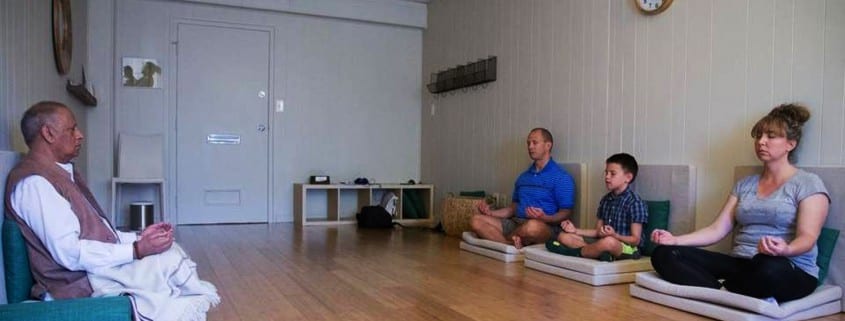Meditation to help kids
While meditation is regularly practiced by only a fraction of Americans, its popularity is growing, especially for children.
A survey by the National Institutes of Health reported a nearly 28 percent increase from 2007 to 2012 in children’s use of meditation. The data showed 927,000 or 1.6 percent of U.S. children meditated. The same survey reported 18 million or 8 percent of adults practiced meditation.
And though the numbers are small, more social service providers, educators, and parents are bringing the benefits of meditation to children.
A Charlotte mother of three and longtime meditation practitioner, Angela Gala, saw each of her children benefit from meditation.
“About two years ago I invited my oldest to meditate with me as he faced some challenges sleeping,” said Gala. “It wasn’t long before he would use the techniques we practiced when he unexpectedly awoke in the middle of the night to comfortably fall back asleep, something that was difficult before.”
She said each of her younger twins eventually meditated, gaining more self-control and focus.
Together with Ranjit Deora, founder of Charlotte Meditation, Gala established Youth Meditation, a nonprofit organization providing programming to children, parents and teachers on mindfulness practices and meditation instruction.
“Meditation is not a religion, philosophy or a lifestyle,” said Deora. “It is simply a relaxation technique combining breathing and mental focus exercises that connect you to the present.”
In 12 years of practice in Charlotte he’s worked with corporations such as Bank of America, AT&T and The Shaw Group.
Deora noted children often adapt to meditation techniques more easily than adults. “They have a greater innocence and fewer activities of life,” said Deora. “They take to it naturally.”
Gala and Deora worked pro bono with 120 children last summer in summer camp classes offered at A Child’s Place, a local organization that works to ease the impact of homelessness on children.
“Our kids face a number of difficult situations that impact their behavior and self-esteem,” said Katrina Griggs, 31, program manager at A Child’s Place. “Meditation gave the children a healthier way to express their feelings and provide techniques and positive outlets to relieve their stress.”
Gala explained the program began with laughter yoga, in which participants force themselves to laugh until it becomes genuine. “Through breathing exercises we teach them to relax, focus and calm anger or frustration they may be experiencing,” she said.
Gala knew she was reaching the children when one child reflected on a situation at home. The child’s mother was upset and raising her voice in anger. “She told me she showed her mother the breathing techniques she learned in our class and performed them together with her mom, completely defusing the situation. They both ended up laughing about it.”
At Charlotte Country Day School, mindfulness meditation classes are part of the overall approach to wellness that the school is committed to for teachers and staff. The school began offering Charlotte Meditation-led classes as part of its wellness programming beginning in the fall of 2014.
“When our teachers and staff are at their best, they can provide our children their best,” said Natalie Pruette, director of communications. “Happy and healthy employees translate to happy and healthy children.”




